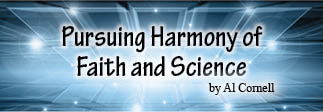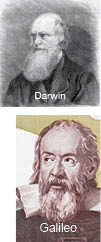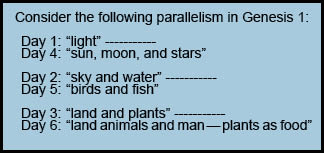Return to 2nd Quarter 2025 articles.

Three of us were discussing science and religion. A fourth person entered, and someone mentioned what we were talking about. The newcomer responded, “I believe in one of them.” We all understood that he was discarding religion as worthless, or perhaps evil, as Richard Dawkins and others have striven to do.

At the 1959 Darwinian Centennial, agnostic Loren Eiseley presented the case that modern science is a child of religion. The Judeo-Christian religion had established the case for a logical and rational creation that could be investigated. That differed from the voodoo and mystical concepts of most cultures.
However, from its inception, that “child” challenged ingrained doctrines established by religious leaders. Copernicus, Kepler, and Galileo studied the world and found themselves at odds with some keepers of the established beliefs. Many people claimed to find biblical proof that the Earth was at the center of the universe. The conflict was resolved with the gradual realization that it arose from the arrogant defense of unwarranted human interpretations of Scripture. However, science continued to challenge religious doctrines.
A significant segment of the religious community, especially in North America, has set its peg on the young-earth interpretation and rejected a huge part of modern science. At the same time, an arrogant segment of the scientific community has declared all religions to be a bunch of ancient myths that need to be discarded. This polarization has resulted in many people choosing a side and acting disparagingly toward the other side.
The late scientist Stephen Jay Gould wrote of what he called separate “magisteria” for science and religion. At first, that approach may sound good. However, Gould claimed nearly everything for science and left a god who could not interfere with natural causes. His analysis of the world only left room for a god who was nearly dead or relaxing on some very distant beach.
Christianity teaches us values of humility, compassion, generosity, love, altruism, faith, honor, worship, holiness, purpose, family, integrity, character, and beauty. Science merely reaches the fringes of some of these. A world without pure religion is not an ideal home for humanity. Eiseley wrote of man, “… without a sense of the holy, without compassion, his brain can become a gray stalking horror — the deviser of Belsen” (a World War II concentration camp). Though many scientists are stellar citizens, that characteristic is not a product of the influence of science’s domain. Science is morally indifferent.
Difficult times are frequently part of the future for those trained in a culture that views the science fields of geology, geography, biology, and astronomy as atheistic assaults on the Bible. Also, the extensive study of the radioactive decay of dozens of elements has broad applications in science. A few examples of contaminated samples do not discredit it.

After being raised in a church culture that presents young earth as a Christian doctrine, young people who enter a science field are thrown into an unnecessary dilemma. They are left believing they must choose between faith and science. Some face the conflict and work through it to an acceptable solution, but most perceive a fundamental flaw in the faith system and drift away from it.
On the other hand, I was exposed to instructors who used their science professor platform to denounce the Christian faith. Evangelistic atheists regularly prey on the youth they instruct and add fuel to the conflict.
However, harmony is attainable for the one who concludes that there is a God who gave us the Word and the world. Scientists study details concerning the world, but topics relating to value and purpose are not subject to research done by physical tools. They are topics of Christianity.
When Genesis 1:2 says, “the Spirit of God was hovering over the waters” that indicates a process. Teaching Genesis 1 as purely prose and demanding literal days from that text is an interpretation that is not without serious question. Being dogmatic about that view is not the same as being faithful to God and the Bible.

There is tremendous satisfaction in being drawn into the harmony of the Word and the world. Turn to Ecclesiastes 3:11 and note the beauty, the God-spot within us, and the unfathomable creation. Listen for the voice of the cosmos as described in Psalm 19:1-4. Combine Romans 1:20 with a view of sunsets and backyard birds and sense the Author of the Word and the world. Open to Hebrews 3:3-4 and land on a reasonable explanation for your existence and for the world around you.

Is reality a random consequence arising from an unpredictable past or a God-caused event? Let the privileged planet, the fine-tuned universe, and the unimaginable transition of the meaning of the Roman cross underpin an unshakable faith. It all comes together as the great reality in which we survive and believe.

Picture credits:
© STori/Bigstock.com
© Morphart/Bigstock.com
© johan10/Bigstock.com
© golubovy/Bigstock.com
© JoanMN/Bigstock.com
© Kuroikuma/Bigstock.com
Scripture links/references are from BibleGateway.com. Unhighlighted scriptures can be looked up at their website.
